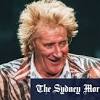Novel Hydrogel Therapy Impedes Invading Pathogens

Speechify
Register for free to listen to this article
Thank you. Listen to this article using the player above. ✖
Vaccines remain the gold standard of protection against dangerous pathogens, but take considerable time and vast resources to develop. Rapidly mutating viruses such as SARS-CoV-2 can blunt their effectiveness and even render them obsolete.
To address these gaps, a multi-university team led by New Jersey Institute of Technology’s Vivek Kumar is developing a hydrogel therapy that acts as a first line of defense against viruses and other biological threats. The peptides that make up this gel prevent viruses such as SARS-CoV-2, which causes COVID-19, from attaching to and entering cells. They do this by binding to a particular receptor on the invading pathogen while also aggregating into a multilayer “molecular mask” that muffles its action.
Over the course of their research, the team discovered that the molecular mask alone prevented infections. The potential advantage of this new technology, they say, is its ability to combat diverse pathogens and disease mutations.
“Protecting people in the initial phases of an outbreak is important,” said Kumar, an associate professor of biomedical engineering. “Our new mechanism could also help first responders on the front lines, military personnel encountering novel pathogens, people in remote, under-resourced areas and those who are unable to receive vaccinations.”
The near-term goal is to produce a nasal spray against airborne infections.
In a recently published study in the journal Nature Communications, the team described how the mask binds non-specifically with its target. It is composed of computationally designed peptides (strings of amino acids that form proteins) that self-assemble into nanoscale fibrous hydrogels. By comparison, antibodies produced by vaccines target particular receptors, as the mRNA vaccines developed during the pandemic that bind with specific proteins on the SARS-CoV-2 spike.
Want more breaking news?
Subscribe to Technology Networks’ daily newsletter, delivering breaking science news straight to your inbox every day.
Subscribe for FREEOf the non-specific protein mask, Kumar noted, “It forms a larger structure and better binding than a single molecule does. While it doesn’t have high specificity, it can self-assemble and stay on the target longer, forming a fiber sticker on the surface that acts like molecular Velcro.”
He added, “The goal would be a topical agent that binds to the virus. In the case of SARS-CoV-2, we would spray it into the nose, which is a major site of infection, perhaps even prophylactically.”
The team first tested the fibers against a number of viruses through computer simulations that employed powerful NVIDIA graphic cards, which are commonly used in competitive gaming. They later conducted successful safety tests with mice and rats, using injections and nasal sprays, said Joseph Dodd-o, a Ph.D. student in Kumar’s lab who conducted much of the research on the therapy along with Abhishek Roy, also a Ph.D. student. The therapy inhibited the Alpha and Omicron variants of SARS-CoV-2 in vitro, lasting for a day without harming the animals in the tests in vivo.
Kumar has developed hydrogels for a number of therapeutic applications. His delivery mechanism is customizable and composed of Lego-like strands of peptides with a bioactive agent attached at one end that can survive in the body for weeks and even months, where other biomaterials degrade quickly. Its self-assembling bonds are designed to be stronger than the body’s dispersive forces; it forms stable fibers, with no signs of inducing inflammation.
The hydrogel is engineered to trigger different biological responses depending on the payload attached. Kumar’s lab has published research on applications ranging from therapies to prompt or prevent the creation of new blood vessel networks, to reduce inflammation and to combat microbes.
“In this case we’re using electrical charges that interact with the pathogen to disrupt it,” Kumar said. “We’re still trying to determine how the fibers interact: Is this a mechanical mode of action? Drug resistant pathogens mutate around biochemical modulators, but are they less likely to mutate around a mechanical spear? By understanding this fundamental interaction, we want to figure out how to use it against different diseases.”
In new studies, the lab is testing the therapy against drug-resistant bacteria and fungi.
Reference: Dodd-o J, Roy A, Siddiqui Z, et al. Antiviral fibrils of self-assembled peptides with tunable compositions. Nat Commun. 2024;15(1):1505. doi: 10.1038/s41467-024-46005-4
This article has been republished from the following materials. Note: material may have been edited for length and content. For further information, please contact the cited source. Our press release publishing policy can be accessed here.


 Australia
Australia Argentina
Argentina  Austria
Austria  Brazil
Brazil  Canada
Canada  Germany
Germany  Ireland
Ireland  Italy
Italy  Malaysia
Malaysia  Mexico
Mexico  New Zealand
New Zealand  Poland
Poland  South Africa
South Africa  United Kingdom
United Kingdom  United States
United States 
























